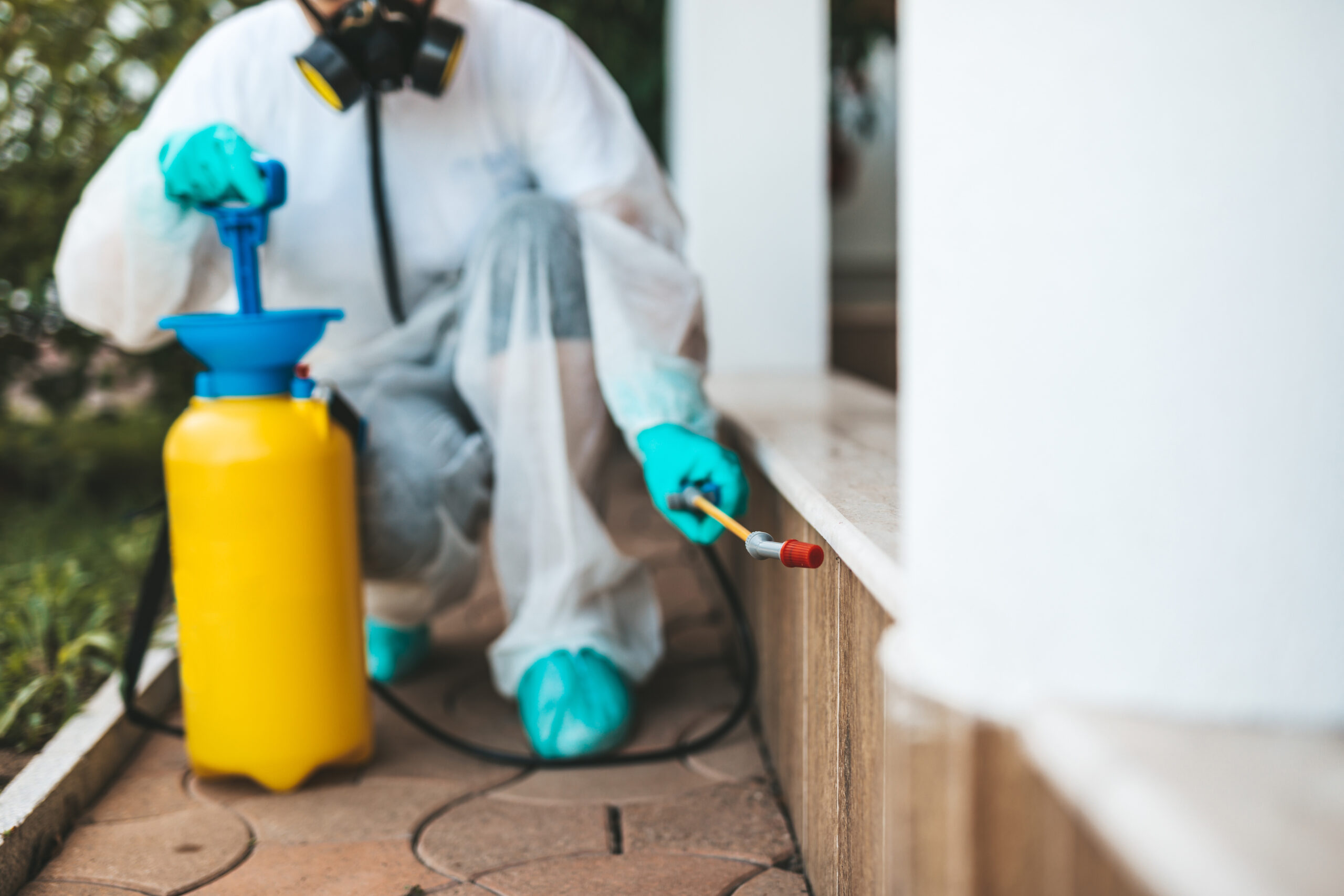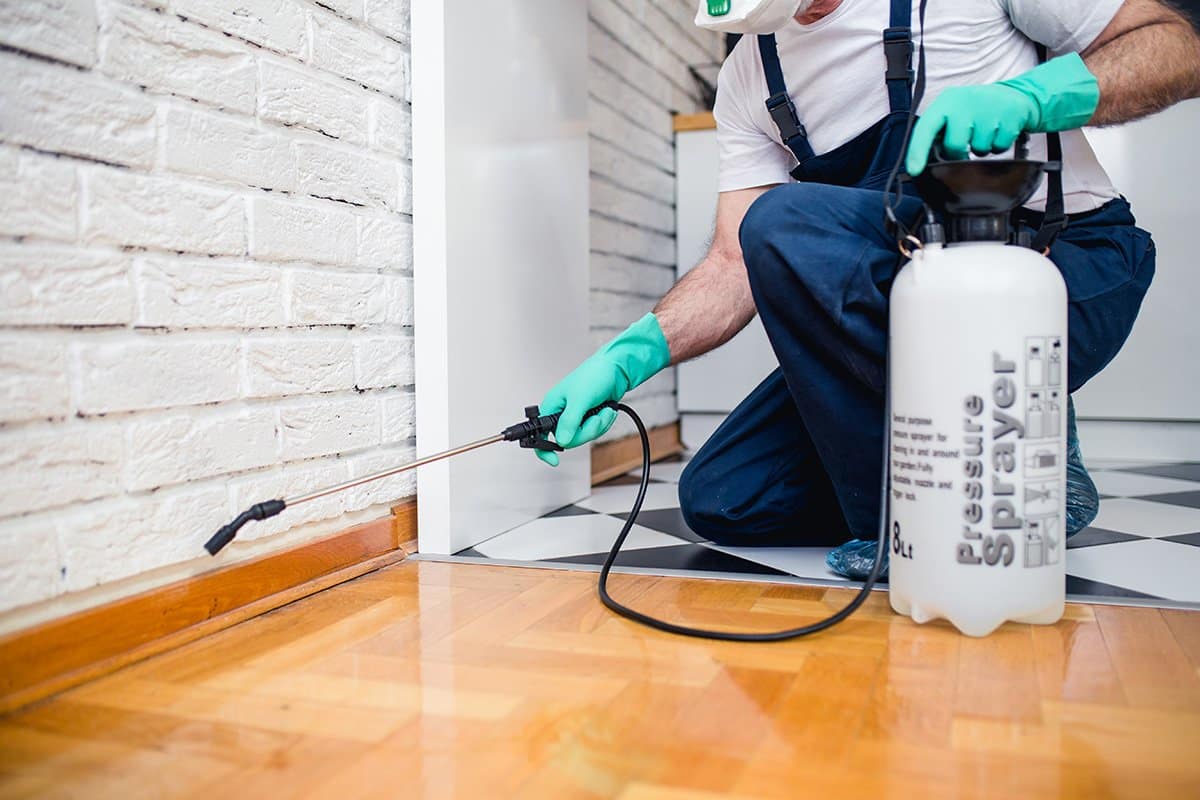Economical Ant Control Solutions: Keep Your Area Ant-Free
Economical Ant Control Solutions: Keep Your Area Ant-Free
Blog Article
Ecological Effect of Pest Control: Harmonizing Performance With Sustainability
The environmental impact of parasite control is a vital problem that calls for a fragile balance in between attaining efficiency in managing parasites and making certain sustainability of our ecosystems. As we aim to secure our crops, homes, and wellness from the risks posed by parasites, the techniques we employ can unintentionally harm the atmosphere. From using harmful chemicals that permeate into our soil and water to the unplanned repercussions on non-target types, the effects of conventional bug control practices are far-reaching. There are emerging techniques that provide hope for a more sustainable method to pest monitoring. These options not only goal to address the instant bug troubles but likewise consider the long-term health and wellness of our earth.
Damaging Chemicals in Bug Control
The application of unsafe chemicals in pest control positions considerable environmental and wellness threats that require cautious consideration and reduction strategies. Insecticides, herbicides, and pesticides are typically utilized to eradicate insects, yet their widespread application can cause unintended effects. These chemicals can contaminate dirt, water sources, and the air, influencing not only the targeted bugs but additionally advantageous pests, wild animals, and human beings.

To address these threats, incorporated pest monitoring (IPM) techniques are being advertised as an extra lasting option. IPM involves a combination of techniques such as biological control, environment adjustment, and the targeted use pesticides as a last option (ant control stalling nc). By taking on an alternative technique to pest control, we can lessen the environmental and health impacts linked with unsafe chemicals while properly taking care of pest populations
Influence On Non-Target Types
Considering the unintentional consequences of insect control techniques, the effect on non-target types is a critical element that needs detailed assessment. While pest control measures aim to target certain parasites, other microorganisms in the community might be inadvertently affected. Non-target types, consisting of valuable insects, birds, animals, and also plants, can endure direct or indirect injury from pesticide applications or biological control approaches.
Pesticides created to fight a particular insect pest may harm pollinators like bees or natural predators such as ladybugs. Biological control agents, if not species-specific, can present dangers to unplanned targets, interfering with the ecological equilibrium.
To reduce the influence on non-target types, integrated pest administration (IPM) strategies that highlight a holistic method to pest control are advised. These approaches prioritize using eco-friendly practices, reducing injury to valuable microorganisms while successfully handling pest populaces. Performing extensive risk evaluations and keeping track of the outcomes of parasite control initiatives are necessary steps in safeguarding non-target varieties and advertising overall ecosystem wellness.
Soil and Water Contamination
Unexpected environmental repercussions of insect control methods expand beyond affecting non-target types, with considerable ramifications for soil and water contamination. Pesticides, herbicides, and chemical fertilizers utilized in bug control can leach right into the dirt and pollute Clicking Here groundwater, posing a risk to both terrestrial and marine environments. Dirt contamination can interfere with the equilibrium of bacteria necessary for vitamins and mineral biking and plant development, leading to decreased dirt fertility and performance. Furthermore, these chemicals can continue the environment for prolonged durations, building up in the dirt and possibly going into the food web.
Water contamination is one more important problem related to bug control methods. Overflow from agricultural fields treated with chemicals can carry these chemicals right into neighboring water bodies, affecting water organisms and water high quality. Pollutants in water resources can have far-ranging effects, influencing not only water life yet also human wellness through the usage of infected water or aquatic microorganisms. To alleviate dirt and water contamination from insect control tasks, incorporated parasite management approaches that prioritize sustainability and minimize chemical inputs are vital.
Air Air Pollution From Chemical Use
Direct exposure to air-borne pesticides during farming applications postures a considerable issue for air contamination control procedures. They can volatilize into the air and kind unstable organic compounds (VOCs) and other air-borne contaminants when pesticides are sprayed onto plants - termite control services. These chemicals can add to the formation of ground-level ozone, a major part of smog that can have destructive impacts on human health and wellness, plant efficiency, and general air top quality. Additionally, chemical drift, where pesticides are lugged by the wind to unintentional locations, can result in the contamination of neighboring environments and water bodies.

Methods for Lasting Pest Control
In the realm of agricultural methods, carrying out sustainable bug control approaches is paramount for maintaining environmental equilibrium and securing plant returns. Lasting bug control stresses the usage of eco pleasant approaches to manage pest populations effectively while reducing harm to non-target organisms and communities. Integrated Bug Administration (IPM) is a commonly embraced technique that integrates biological, cultural, physical, and chemical control techniques to achieve long-term pest management solutions.
Crop rotation and diversity are likewise effective strategies to interrupt pest life cycles and create much less positive conditions for pests to grow. Eventually, by integrating these lasting insect control strategies, farmers can attain an equilibrium in between pest management performance and environmental stewardship.
Conclusion
Finally, the ecological impact of parasite control techniques have to be thoroughly taken into consideration to balance efficiency with sustainability. Harmful chemicals utilized in parasite control can lead to soil and water contamination, air contamination, and injury non-target species - termite control. It is essential to execute lasting parasite control strategies to reduce these adverse effects on the environment and promote a healthier ecological community for future generations
By adopting an alternative technique to pest control, we can minimize the ecological and health effects associated with unsafe chemicals while successfully managing pest populations.

To reduce the air contamination triggered by chemical use, it is necessary to adopt integrated parasite administration approaches that prioritize the usage of non-chemical pest control techniques, such as plant rotation, natural killers, and immune crop ranges. Lasting pest control highlights the usage of environmentally friendly approaches to manage insect populaces effectively while reducing injury to non-target organisms and communities. Integrated Bug Management (IPM) is a commonly embraced strategy that combines biological, social, physical, and chemical control approaches to accomplish lasting pest administration solutions.
Report this page